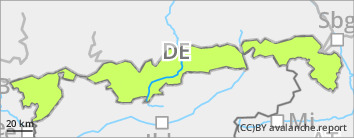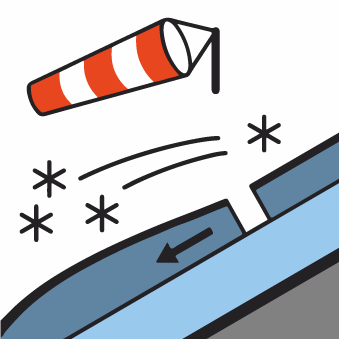
Danger level
 | 2000m |
|  |
|  |

Circumvent small snowdrifts, esp. at high altitudes
Avalanche danger is low. Major problem: snowdrifts. Small snowdrift accumulations can trigger small slab avalanches even by the weight of one single skier, particularly at high altitudes. Danger zones occur in steep ridgeline terrain on N/NW/E facing slopes and in gullies and bowls. Dangers of being swept away and of taking a fall outweigh those of being buried in snow masses.
Snowpack
On high-alttiude shady slopes, shallow snowdrifts lie deposited atop loose layers on shady slopes and are prone to triggering. Elsewhere the snowpack is stable by and large, and free of weak layers. Due to mild temperatures the snowpack becomes moist during the daytime and forfeits its firmness. On south facing slopes the ground is already bare at intermediate altitudes. All in all, there is little snow on the ground.
Tendency
Avalanche danger levels will remain low.
